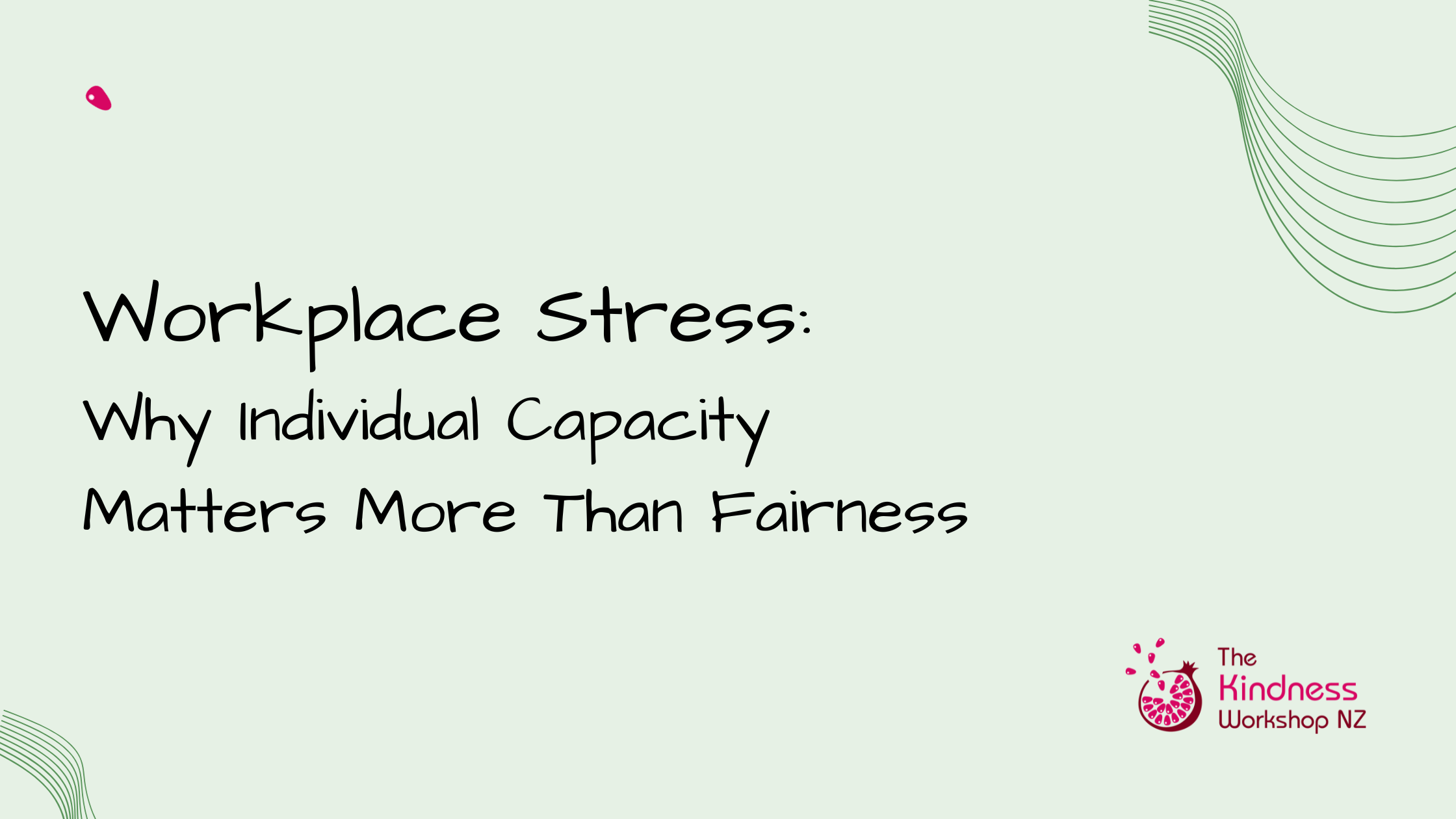Workplace Stress:Why Individual Capacity Matters More Than Fairness
Caring for staff well-being is a tension for radically kind leaders. They want to prioritise and care for staff well-being but are also aware of having to balance this with organisational priorities, the work that must be done, and fairness to all team members. These are difficult challenges to balance, yet successfully supporting staff to manage the stresses and strains of work is key to burnout prevention.
Burnout is the result of chronic workplace stress that has not been successfully managed.
But what does “successfully managing stress” actually mean?
It might help to think of the workplace as going on a tramp (hike). In this multi day expedition we are all carrying big tramping backpacks. We come in different sizes, and have variations in strength. Some have old backpacks that are worn and shabby, getting a bit thin in places; others have the latest brand new backpacks. Some team members already carry a few old rocks from their lives or previous jobs. We all need to carry equipment and supplies for our journey.
The backpacks represent our capacity to manage (or cope with) stress. Our workloads and work demands are like all the equipment and supplies we need to carry. The amount we can carry depends on how big and strong we are, the condition of our backpack, and how many tramps we have completed back to back.
Stress is a highly individual experience, we all have different capacities and skills for handling it, and what stresses some people may not stress others. Thats why knowing your team well is such an important factor for kind leaders who want to prevent burnout. When leaders know their team, they can better understand the condition of each member’s backpack and size and strength. In other words their individual capacity for workload and stressful situations.
Kind leaders consider the following as they evaluate what they are asking their team to carry:
A realistic workload. If the load is bigger than the team member’s backpack it is unrealistic. They can’t carry more than what fits.
Control. Team members should have some say about what is in their backpack, and how it is packed. No one wants to discover a suprise rock.
Reward. Staff want some treats in their backpack, but mainly they want their work to be noticed, valued and acknowledged (not necessarily with monetary reward).
Expressed Values. Staff want to carry what is important to them, aligned with their values. They want to see the organisation’s values expressed in daily actions.
We are not tramping alone, but as part of a community. In today’s disconnected and individualistic society, it can be challenging to establish a sense of team. When we tramp as part of a group we look out for one another, and encourage one another on places of the trail or times of the day that are difficult. On a tramp with good friends, the stronger members might even carry more equipment than those who are smaller, or not as strong. This can be challenging when thinking about fairness in contrast to individual capacity. Tensions often arise if people feel they are carrying more than others. Creating a true culture of care within a team helps negotiate these tensions around fairness and capacity. People are more willing to help each other if they feel connected and see themselves as working towards a common shared goal (rather than the many individual goals teams often have).
As we explore managing stress using the backpack analogy, we see several ways for kind leaders to help staff manage stress:
Helping team members get stronger, for example, sending them on a workplace stress management or resilience course.
Ensuring that our team members aren’t carrying too much, by making sure their workloads are realistic.
Supporting staff to put down their backpacks regularly, making sure they are taking holidays and encouraging them not to answer work emails after hours.
Understanding what rocks team members may be carrying from previous experiences, and helping them leave them behind.
Individuals are complex, with different capacities reactions and responses. A common misconception is that kindness is treating people fairly, but true kindness is seeing people as individuals, recognising their unique needs and responding well to those needs. Kind leaders understand that stress and our ability to manage it is experienced uniquely and requires individual responses.
Stay Kind
Christina

